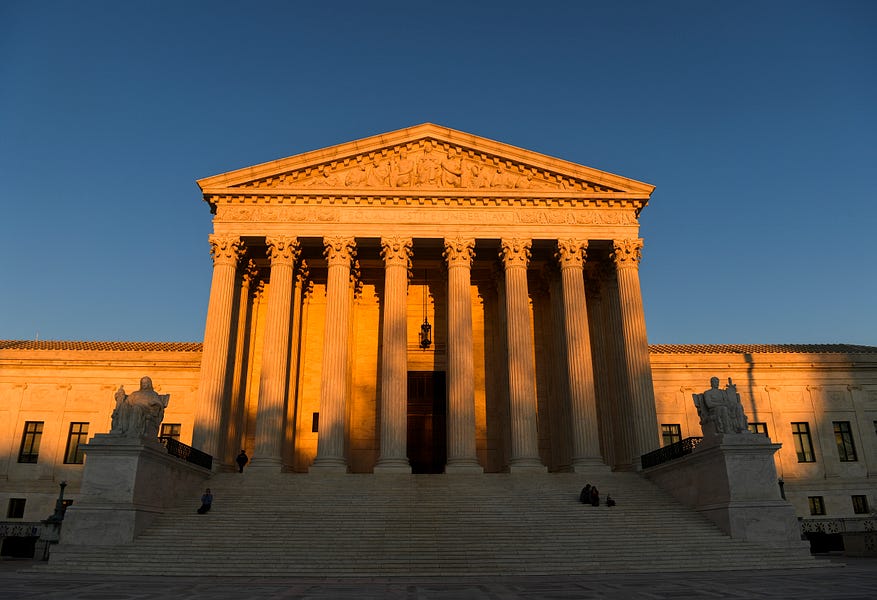Congress has the authority to place conditions on organizations that receive federal funding. For example, recipients may be required to show they use the funds for the intended purpose and submit to audits to prove it, and it often requires recipients to pledge they will comply with other federal laws. But the imposition of those conditions cannot violate the constitutional rights of recipients. The Supreme Court has a chance to reaffirm this principle in a free expression case that will be argued Tuesday.
The Alliance for Open Society International, an organization in George Soros’ philanthropic network that fights HIV/AIDS worldwide, is challenging the U.S. Agency for International Development’s attempt to force AOSI’s foreign affiliates to adopt the government’s position opposing prostitution.
But USAID v. Alliance for Open Society International Inc.is not a case about prostitution. It’s about whether the government has the power to compel speech. And it’s about free association—the degree to which organizations can set their own policies and govern themselves. AOSI is not pro-prostitution, and it uses no taxpayer money to promote it. But AOSI disagrees with the government’s characterization of all prostitution as “sex trafficking.” And to partner with the government to fight HIV/AIDS, the government demands that AOSI not just restrict the use of taxpayer funds, but also affirmatively pledge that it believes what the government believes.
In the first time around with this case in 2013, the Supreme Court struck down the “policy requirement” provision of the United States Leadership Against HIV/AIDS, Tuberculosis, and Malaria Act of 2003 (Leadership Act). That provision had forced some public-health organizations like AOSI to endorse the government’s policy in opposition to prostitution by adopting an official organization policy “explicitly opposing prostitution and sex trafficking” and demonstrating adoption of such a policy to USAID. The Global Fund to Fight AIDS, Tuberculosis and Malaria, the World Health Organization, the International AIDS Vaccine Initiative, and all U.N. agencies are exempt from the requirement.
“The Policy Requirement mandates that recipients of federal funds explicitly agree with the Government’s policy to oppose prostitution,” Chief Justice John Roberts wrote for the Court. “The First Amendment, however, ‘prohibits the government from telling people what they must say.’”
That should have ended the matter.
But now the government is back, arguing that international affiliates ought to be subject to the policy requirement because they do not enjoy the same First Amendment protections as their U.S. colleagues because they are incorporated and operate outside the United States.
But that should not matter. The First Amendment restrains the actions of the government: “Congress shall make no law … abridging the freedom of speech.” Congress cannot avoid that restraint through clever manipulation of corporate structure. Here, forbidden by the Supreme Court from compelling the same pledge from U.S. organizations, it seeks to compel it from their foreign affiliates instead.
A federal district court didn’t buy the government’s argument and blocked it from applying the policy requirement to AOSI or its co-branded affiliates, foreign or domestic, rejecting the artificial distinction between legal entities speaking with one voice that is imagined by the government. The U.S. Court of Appeals for the Second Circuit upheld that ruling.
The Supreme Court should too.
One lesson repeated in the last few months, is that in dealing with a worldwide health crisis like HIV/AIDS, it’s critically important to have local organizations involved. That’s why the government wants to fund their activities—they’re best situated to meet the public health needs of local communities.
As a policy question, we can debate whether supporting or opposing legal prostitution is a help, a hindrance, or irrelevant to meeting the policy challenge.
But whether a person or a group opposes prostitution is not the question at stake in the Supreme Court. The question is whether the government should be permitted to force any group to adopt such a policy—or any policy—as a condition of funding.
At the heart of the First Amendment lies the principle that every person should decide for themselves what they want to say, or whether they want to say anything at all.
AOSI and other groups have been in court defending their rights to free speech and free association since 2005. Federal courts at every level, including the Supreme Court, have sided with them and against the government.
After 15 years, it’s past time to lay this issue to rest, guarantee their First Amendment rights, and let these groups carry on with the work they’re doing.
Casey Mattox is a senior fellow at the Charles Koch Institute.
Photograph of the Supreme Court building by Jonathan Newton/Washington Post/Getty Images.








Please note that we at The Dispatch hold ourselves, our work, and our commenters to a higher standard than other places on the internet. We welcome comments that foster genuine debate or discussion—including comments critical of us or our work—but responses that include ad hominem attacks on fellow Dispatch members or are intended to stoke fear and anger may be moderated.